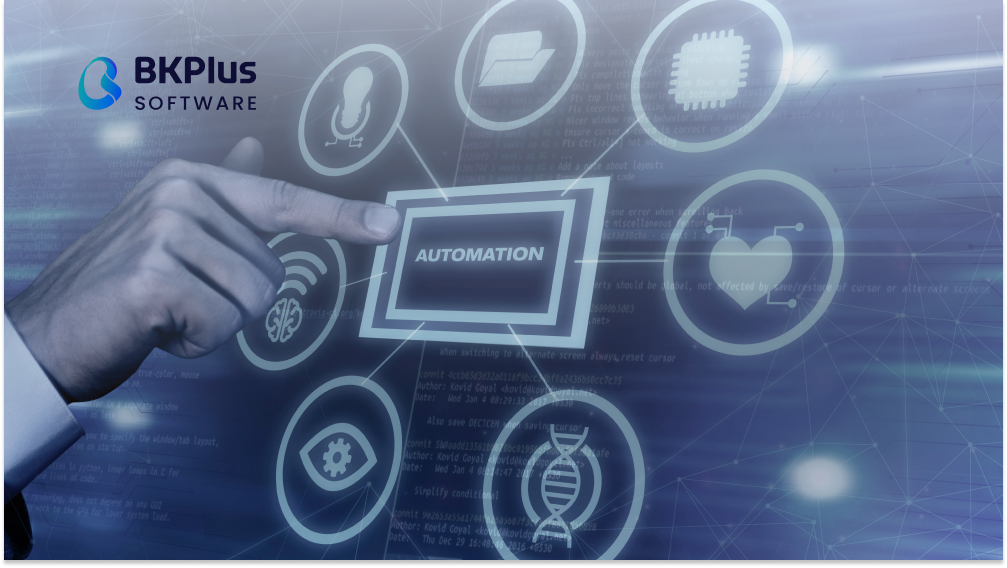In today’s fast-paced digital landscape, businesses face increasing pressure to optimize operations, reduce costs, and deliver exceptional value to customers. AI and Big Data integration offers a powerful solution, enabling organizations to harness vast datasets and intelligent algorithms to drive efficiency and innovation.
This article explores how these technologies work together to boost business performance, offering practical insights and strategies for implementation.
Understanding AI and Big Data Integration
The convergence of artificial intelligence (AI) and Big Data is reshaping industries by unlocking actionable insights from complex datasets. AI and Big Data integration involves using AI algorithms to analyze massive volumes of structured and unstructured data, enabling businesses to uncover patterns, predict trends, and automate processes. This synergy empowers organizations to transform raw data into strategic assets, boosting business performance across various sectors.
The Role of AI in Business
AI for business refers to the application of machine learning, natural language processing, and predictive analytics to enhance business operations. Unlike traditional software, AI systems learn from data, adapt to new information, and make decisions with minimal human intervention. For example, AI-powered chatbots can handle customer inquiries 24/7, reducing response times and improving customer satisfaction. Thanks to automating repetitive tasks, AI allows employees to focus on high-value activities, significantly enhancing business efficiency.
The Role of Big Data in Business
Big Data in business involves collecting, storing, and analyzing vast amounts of data generated from customer interactions, transactions, and operational processes. This data, when processed effectively, provides insights into market trends, customer preferences, and operational bottlenecks. For instance, retailers use Big Data to optimize inventory levels by analyzing purchasing patterns, ensuring stock aligns with demand. This capability is critical for boosting business performance by minimizing waste and maximizing profitability.

How AI and Big Data Work Together
The integration of AI and Big Data creates a powerful feedback loop. AI algorithms require large datasets to train and improve their accuracy, while Big Data benefits from AI’s ability to process and interpret information at scale. Together, they enable businesses to automate complex tasks, predict outcomes, and personalize customer experiences.
For example, a logistics company might use AI and Big Data integration to optimize delivery routes by analyzing real-time traffic data, weather conditions, and historical delivery times, resulting in significant cost savings and improved efficiency.
Benefits of AI and Big Data Integration for Business Efficiency
The combination of AI and Big Data delivers transformative benefits that directly contribute to boosting business performance. Therefore, companies can streamline operations, enhance decision-making, and stay ahead of the competition. Below, we explore how this integration drives business efficiency in key areas.
Enhanced Decision-Making with Data-Driven Insights
Effective decision-making is the cornerstone of business success. AI and Big Data integration empowers organizations to make informed choices by providing real-time, actionable insights. Unlike traditional analytics, which often rely on static reports, AI-driven systems continuously learn from new data, offering dynamic recommendations.
For instance, financial institutions use AI to analyze Big Data from market trends and customer behavior, enabling them to identify investment opportunities or detect fraudulent transactions with high accuracy. This precision not only reduces risks but also enhances business efficiency by enabling faster, more reliable decisions.
Moreover, AI’s ability to process unstructured data such as social media posts or customer reviews allows businesses to gain a deeper understanding of market sentiment. When integrating these insights with structured data like sales figures, companies can develop strategies that align with customer needs, further boosting business performance.
Streamlined Operations Through Automation
Automation is a key driver of business efficiency, and the integration of AI and Big Data integration takes it to the next level. AI can identify repetitive tasks that can be automated, reducing manual effort and minimizing errors by analyzing large data sets . In manufacturing, for example, AI-powered systems monitor equipment performance using Big Data from sensors, and predict maintenance needs before breakdowns occur. This proactive approach reduces downtime, optimizes resource allocation and increases overall productivity.

Furthermore, AI-driven automation also extends to supply chain management. As suppliers integrate Big Data, inventory systems and customer demand, AI can optimize procurement processes and ensure materials are available when needed without overstocking. This
Personalized Customer Experiences
Providing personalized experiences is crucial for customer loyalty and satisfaction. The integration of AI and Big Data enables businesses to analyze customer data such as purchase history, browsing behavior and preferences to create tailored offers. E-commerce platforms, for example, use AI algorithms to recommend products based on Big Data from customer interactions, thereby increasing conversion rates and customer loyalty.
This personalization goes beyond product recommendations. Marketing teams can use AI to analyze Big Data from various channels, such as email campaigns and social media, to develop targeted campaigns that resonate with specific audiences. By delivering relevant content at the right time, companies can improve customer engagement, increasing both efficiency and revenue growth.
Predictive Analytics for Proactive Strategies
Predictive analytics is a key factor in improving business performance. By combining the predictive capabilities of AI with the comprehensive data sets of Big Data, businesses can anticipate market trends, customer needs, and potential challenges. For example, healthcare providers are using the integration of AI and Big Data to predict patient outcomes by analyzing medical records and lifestyle data, enabling early interventions that improve care and reduce costs.
In retail, predictive analytics helps businesses forecast demand, optimize pricing and manage inventory effectively. By anticipating customer behavior, companies can proactively align their strategies, reduce waste and increase business efficiency. This predictive approach ensures that companies remain competitive in dynamic markets.
Implementing AI and Big Data Integration in Your Business
While the benefits of AI and Big Data integration are clear, successful implementation requires a strategic approach. Businesses must align technology adoption with their goals, ensuring seamless integration and measurable outcomes. Here’s how to effectively incorporate these technologies to boost business performance.
Building a Robust Data Infrastructure
Before diving into AI and Big Data integration, businesses need a solid data infrastructure. Transitioning to a scalable, cloud-based data platform is essential for handling large volumes of data efficiently. A robust infrastructure ensures data is accessible, secure, and organized, enabling AI algorithms to process it effectively. For example, a retail company might invest in a cloud data warehouse to store customer and transactional data, providing a foundation for AI-driven analytics.
Additionally, businesses must prioritize data quality. Inaccurate or incomplete data can undermine AI’s effectiveness, leading to flawed insights. Implementing data governance policies such as regular data cleansing and validation ensures that Big Data in business is reliable, maximizing the impact of AI integration on business efficiency.
Choosing the Right AI Tools
Selecting the appropriate AI tools is critical for successful integration. Businesses should evaluate solutions based on their specific needs, such as predictive analytics, natural language processing, or robotic process automation. For instance, a customer service team might adopt an AI-powered chatbot to handle inquiries, while a logistics firm might choose AI for route optimization. Partnering with a trusted provider like BKPlus Software can simplify this process, offering tailored AI solutions that align with business goals.
Furthermore, businesses should consider scalability when choosing AI tools. As data volumes grow, AI systems must adapt to handle increased complexity without compromising performance. Investing in flexible, scalable solutions ensures long-term success in boosting business performance.
Training and Upskilling Teams
AI and Big Data integration requires a skilled workforce capable of leveraging these technologies effectively. Transitioning to a data-driven culture involves training employees to interpret AI-generated insights and act on them. For example, marketing teams can be trained to use AI tools for campaign optimization, while operations teams learn to monitor AI-driven automation systems.
Upskilling also fosters employee buy-in, reducing resistance to technological change. By investing in training programs, businesses empower their teams to drive business efficiency, ensuring that AI and Big Data integration delivers maximum value.
Measuring Success and Iterating
To ensure AI and Big Data integration delivers measurable results, businesses must establish clear metrics for success. KPIs such as cost savings, revenue growth, or customer satisfaction rates can gauge the impact of these technologies. For instance, a company implementing AI for supply chain optimization might track reductions in delivery times or inventory costs.

Continuous iteration is equally important. AI systems improve with feedback, so businesses should regularly assess performance and refine their strategies. Indeed, businesses can sustain improvements in business efficiency over time by analyzing outcomes and adjusting approaches.
Challenges and Solutions in AI and Big Data Integration
While AI and Big Data integration offers immense potential, it comes with challenges that businesses must address to maximize benefits. Understanding these obstacles and their solutions ensures a smoother adoption process.
Overcoming Data Silos
Data silos isolated datasets across departments can hinder AI and Big Data integration. Transitioning to a unified data ecosystem is critical for enabling seamless data sharing. Businesses can address silos by adopting integrated platforms that centralize data, allowing AI algorithms to access comprehensive datasets. For example, a healthcare provider might consolidate patient data from multiple systems into a single platform, enabling AI to deliver holistic insights.
Addressing Privacy and Security Concerns
Big Data in business often includes sensitive information, raising privacy and security concerns. AI systems must comply with regulations like GDPR or CCPA to protect customer data. Businesses can mitigate risks by implementing robust encryption, anonymizing data, and conducting regular security audits.
Managing Implementation Costs
The initial investment in AI and Big Data integration can be significant, particularly for small and medium-sized enterprises. However, the long-term benefits such as cost savings and increased revenue often outweigh upfront costs. Businesses can start with pilot projects, such as implementing AI for a single process like customer support, to demonstrate value before scaling up. This phased approach minimizes financial risks while driving business efficiency.
Conclusion
The integration of AI and Big Data is revolutionizing the way businesses operate, offering unparalleled opportunities to boost business performance and improve efficiency. By using AI for business and Big Data in business, organizations can make data-driven decisions, automate processes and provide personalized customer experiences. While there are challenges such as data silos and privacy concerns, strategic implementation and robust solutions can overcome these. As technology evolves, businesses that leverage AI and Big Data integration will stay ahead, drive innovation and achieve sustainable growth.
Partner with BKPlus Software to realize the full potential of these technologies and transform your business today.



